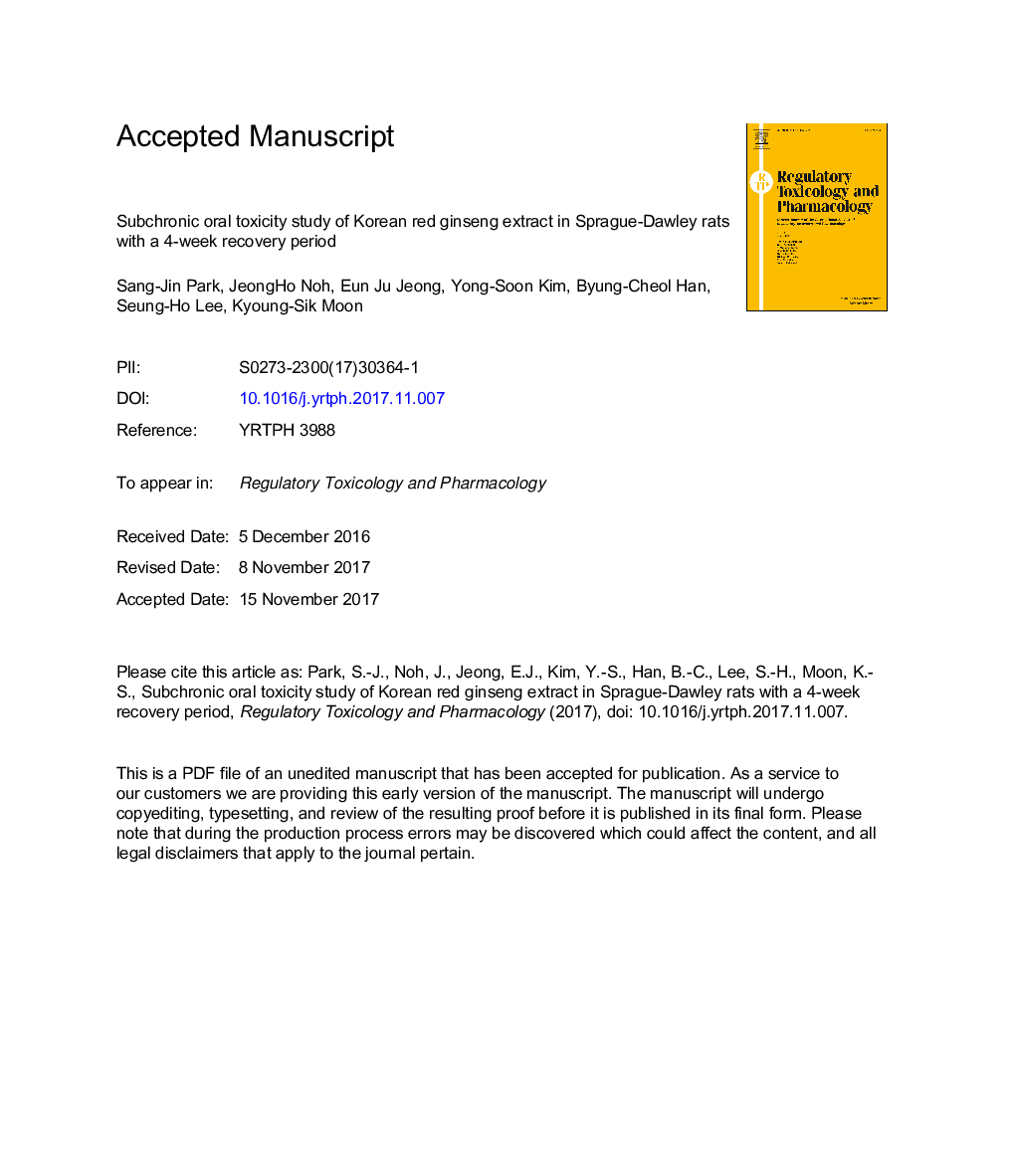| Article ID | Journal | Published Year | Pages | File Type |
|---|---|---|---|---|
| 8551682 | Regulatory Toxicology and Pharmacology | 2018 | 36 Pages |
Abstract
Ginseng is a major herbal remedy used in Asian countries for thousands of years and known to restore and enhance vital energy. Korean red ginseng, which is processed by steaming and drying fresh Panax ginseng, is most popular and contains unique ginsenosides, which have anticancer and anti-inflammatory properties. The present study was carried out to evaluate the repeated oral dose toxicity of Korean red ginseng extract. The test article was administered orally once a day to male and female Sprague-Dawley rats at dose levels of 0, 500, 1000, or 2000Â mg/kg/day for 13 consecutive weeks (15 animals/sex/group in the vehicle control and 2000Â mg/kg/day groups, and 10 animals/sex/group in the 500 and 1000Â mg/kg/day groups). Ten animals per group were sacrificed at the end of the 13-week treatment period, and the remaining rats were sacrificed after a 4-week recovery period. Administration of Korean red ginseng extract did not result in any toxicologically significant changes in mortality, body weight, food consumption, ophthalmoscopy, hematology, serum biochemistry, gross pathological findings, absolute/relative organ weights, or histopathology. It was established that the no observed adverse effect level (NOAEL) of the test article was 2000Â mg/kg/day for both sexes in this study.
Related Topics
Life Sciences
Environmental Science
Health, Toxicology and Mutagenesis
Authors
Sang-Jin Park, JeongHo Noh, Eun Ju Jeong, Yong-Soon Kim, Byung-Cheol Han, Seung-Ho Lee, Kyoung-Sik Moon,
